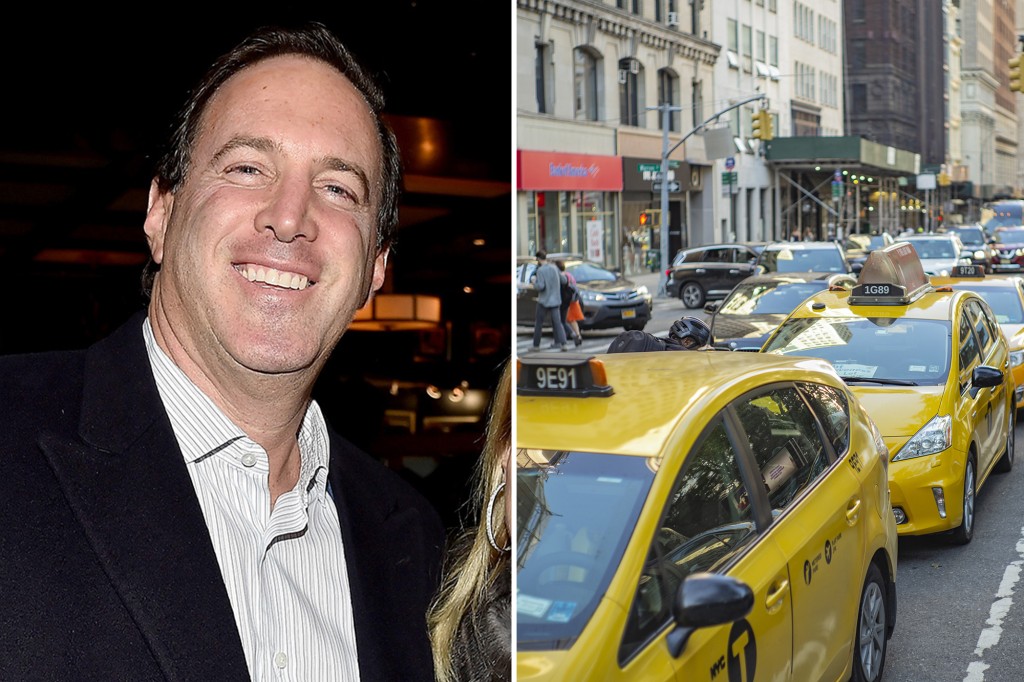The brash boss of a New York City taxi medallion lender secretly paid for favorable news stories about his struggling company in a bid to boost its stock price, according to a Wednesday fraud complaint from the Securities and Exchange Commission.
Andrew Murstein, the 57-year-old president and chief operating officer of Manhattan-based Medallion Financial Corp., allegedly came up with the scheme as the rise of Uber and Lyft caused investors to sour on taxi-related stocks.
In a bid to change investors’ minds, the SEC says, Murstein hatched a plan: hiring media strategists to write articles boosting his company without disclosing that they were being paid. The strategists then used fake names to place at least 50 articles about Medallion Financial on sites including Seeking Alpha, TheStreet, HuffPost and Crain’s New York Business from 2014 to 2017, according to the complaint.
“Murstein allegedly paid for more than 50 articles and hundreds of positive comments, which were really paid advertisements placed across the web in an effort to deceive investors about the value of Medallion’s stock,” SEC New York regional director Richard Best said.
Many of the blogs were personally edited and tweaked by Murstein, according to the complaint. Murstein also pressured accountants into giving Medallion Financial a higher valuation than it deserved, the SEC said.
Shares of Medallion Financial on Wednesday closed down more than 21 percent to end trading at $6.67 each.

Murstein’s company, which went public in 1996 and helped revolutionize the taxi industry by making risky medallion loans to low-income drivers, saw its shares trade north of $17 as recently as 2013.
The business made Murstein and his father extraordinarily wealthy. The duo raked in more than $42 million from 2002 to 2014, according to the New York Times. Murstein spent lavishly, hiring Nicki Minaj to perform at his son’s 2015 bar mitzvah as Medallion Financial bought up professional lacrosse and Nascar teams, the paper reported. The company’s Nascar vehicle was painted like a taxi.
But as New Yorkers started flocking to Uber and Lyft, the value of medallions — which give holders the right to drive yellow cabs in the city — tanked. Investors then soured on Medallion Financial’s shares, sending them as low as $2 at one point in 2017.
“Under pressure to do something, Murstein violated the federal securities laws,” the SEC said.
In a statement to The Post, a spokesperson for Medallion Financial said the company plans to “vigorously defend against the SEC’s unfounded charges and are confident we will be completely vindicated.”
The spokesperson did not deny that Murstein — who also sits on the board of the Javits Center — secretly paid for articles but said the conduct was in “good faith.”
“The actions in question occurred five or more years ago at a time when short sellers were engaged in an online campaign to drive down the Company’s stock price for their personal profit by spreading misleading and disparaging information and misrepresenting its business,” the spokesperson said.
“Medallion sought only to provide the market with an accurate understanding of the Company’s financial position and prospects and an appropriate and transparent valuation of Medallion Bank and its other assets.”
“None of the allegations in the SEC complaint gives rise to a securities violation,” the spokesperson added.

The SEC is seeking permanent injunctions, disgorgement plus prejudgment interest, and civil penalties against Medallion Financial, Murstein and Lawrence Meyers — a California PR pro who allegedly wrote some of the fraudulent posts.
In addition, the SEC wants Murstein to be barred from serving as an officer or director of any public company.
The SEC complaint also noted that in 2016 a Post reporter confronted Murstein about allegations that he paid writers to boost his company under fake names in potential violation of securities laws. Murstein denied to The Post that he was responsible for the articles, the complaint says.
Shortly after The Post contacted Murstein, he inked an agreement with the contractor who had written some of the articles, paying her $15,000 in “hush money” to “falsely affirm” that she was never ordered to write articles about Medallion Financial under a fake name, according to the SEC.
Of the sites that allegedly posted the pro-Medallion Financial blog posts, none responded to The Post’s requests for comment except for HuffPost, which said that a contributor posting under the names Jayme Stanley and Sarah Frigo wrote for the site’s blog platform, but wasn’t an employee and wasn’t paid. “Their opinions and actions to not represent HuffPost,” Lizzie Grams, a HuffPost spokeswoman, said.
Meyers, who was reportedly paid $65,000 for helping Murstein, could not be reached.
The plunging price of medallions has also had a devastating effect individual cabbies, at least three of whom found themselves deeply in debt to lenders and killed themselves in recent years. After years of protests from drivers, Mayor Bill de Blasio unveiled an agreement in November that will cap medallion loans at $170,000.
